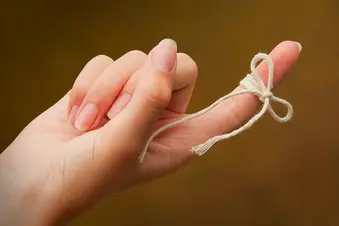How Is Your Memory Holding Up?


Question 1/14
Most adults can't remember anything that happened before they were 3 years old.
- True
- False
Question 2/14
Which of the following helps turn short-term memories into long-term memories?
- Sleep
- Aging
- Digestion
- None of the above
Question 3/14
A short-term memory is likely to become a long-term memory if it has a link to:
- Sensory information (smells, sounds, etc.)
- Current or historic events
- Your other long-term memories
- All of the above
Question 4/14
A long-term memory fades because:
- It's no longer important
- It's replaced by other memories
- We can't find the link to retrieve the memory
Question 5/14
What's more likely to help you remember to pick up the dry cleaning after work?
- Focusing on it and committing it to memory early in the day
- Seeing a dry cleaning receipt in your wallet
Question 6/14
Which of the following can cause memory problems?
- Dehydration
- Stress
- Infections
- All of the above
Question 7/14
Everyone will have some memory loss as they get older.
- True
- False
Question 8/14
A good social life can keep your mind sharp as you age.
- True
- False
Question 9/14
Blood pressure and memory loss are related.
- True
- False
Question 10/14
What's something older people can do to help their memory?
- Crossword puzzles
- Meditation
- Physical activity
- All of the above
Question 11/14
| When an older person forgets where they parked the car, it may be caused by a lack of attention rather than a lapse in memory. |
- True
- False
Question 12/14
Memory problems are one of the first signs of Alzheimer's disease.
- True
- False
Question 13/14
You could have a serious memory problem if you:
- Forget where you put your keys
- Forget certain words or names
- Get lost in places you know well
- Take longer to learn new things
Question 14/14
You're more likely to get dementia if your spouse has it.
- True
- False

